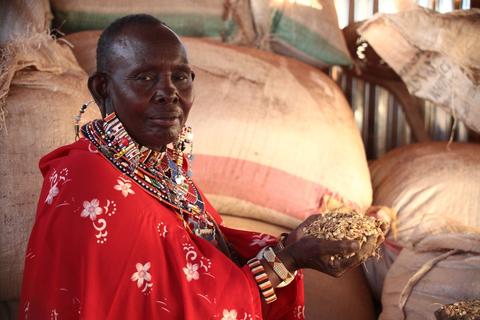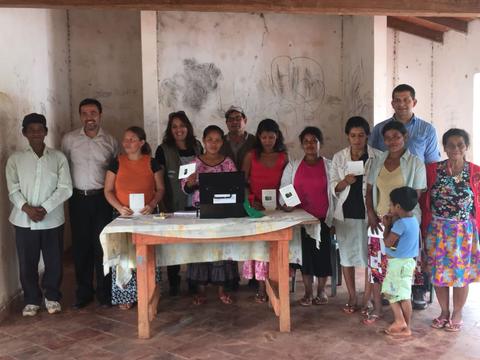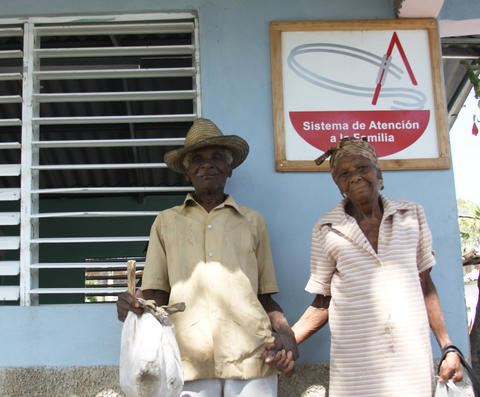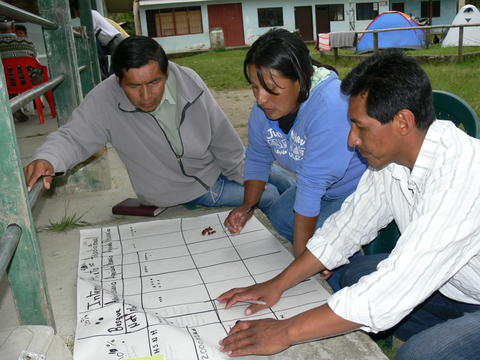March 20, 2018
The Role of Law Schools in Shaping Global Gender Justice
By Rangita de Silva de Alwis
Rangita de Silva de Alwis is Associate Dean of International Affairs, University of Pennsylvania Law School, and Advisor, UN Sustainable Development Goals Fund
UNITED NATIONS, Mar 14 2018 (IPS) - March 8th, 2018, International Women’s Day, saw an extraordinary global mobilization for gender equality. In the last year, global movements for gender equality– from marches to powerful grassroots organizing and viral social media campaigns, such as #MeToo and #TimesUp in the United States and other countries– have galvanized the world’s attention like never before.
Against the backdrop of historic global efforts for women’s rights and gender equality, the 62nd session of the UN Commission on the Status of Women (CSW) began its two-week long deliberations at the UN Headquarters in New York on Monday, March 12.
This is the UN’s largest gathering on gender equality and women’s rights, and the single largest forum for UN Member States, civil society organizations and other international actors to build consensus and commitments on global policy.
At this tipping point in history, do lawyers, law schools and law students have a higher moral role to play in addressing the shameful legacy of gender discrimination in every community and country? Law schools train the next generation of lawyers, leaders and advocates and help inform the laws and policies that shape the lives of women and men in their countries.
Law schools, by virtue of their very mission, must stand up against injustice everywhere. Along with governments, and civil society networks, law schools have a role to play in the profound legal, political and social changes that are unfolding around the world. In the 21st century, gender discrimination in law remains widespread; according to IFC research, 155 of the 173 economies covered have at least one law that challenges women’s economic opportunities.
There are over 900 legal gender differences across 173 economies. In 100 economies, women face gender-based job restrictions. In 18 economies, husbands can legally prevent their wives from working. However, a powerful new movement that transcends borders and boundaries is driving women to connect, mobilize and lead like never before and law schools must join this global effort.
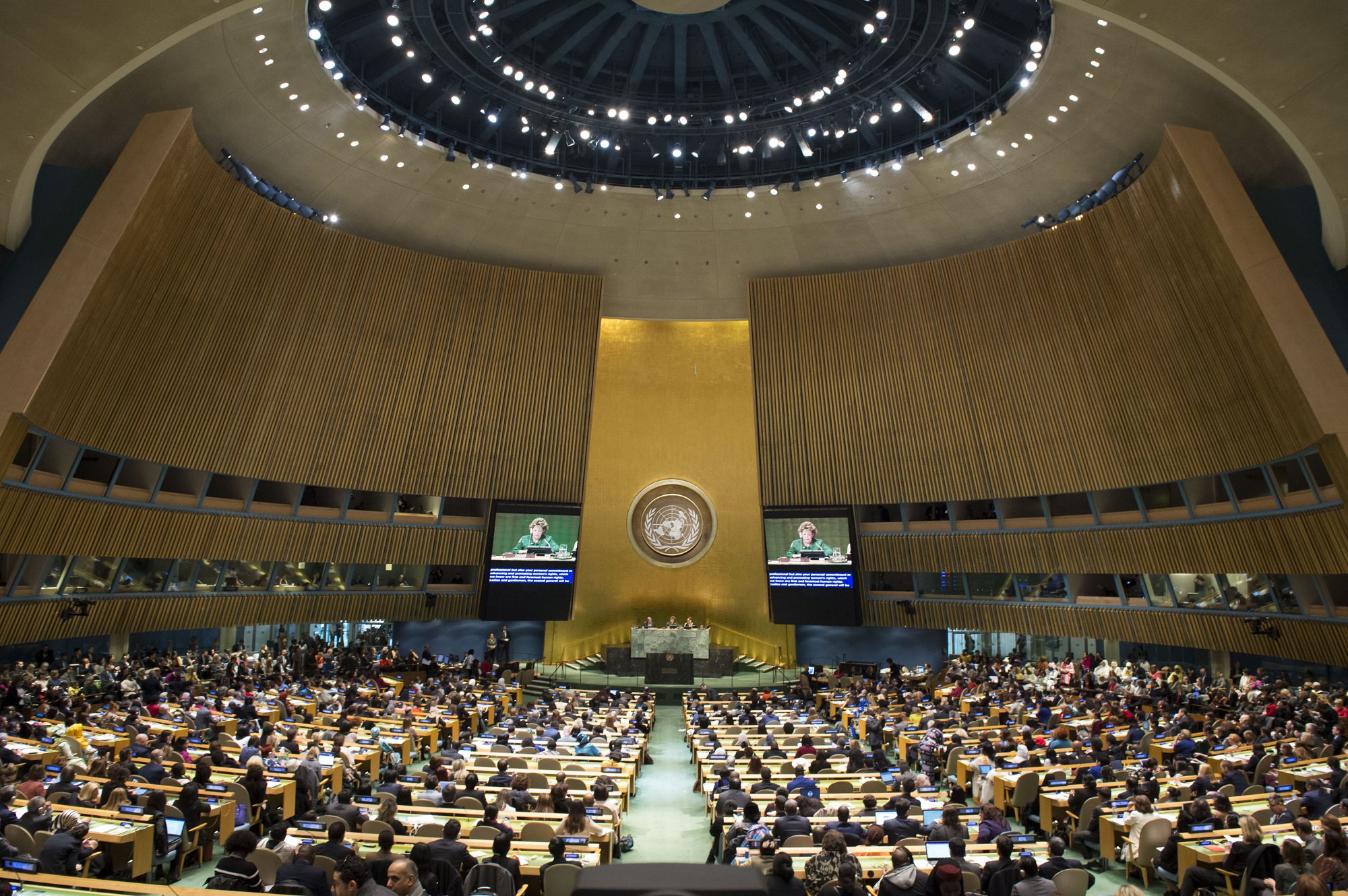
Opening of the 62nd session of the Commission on the Status of Women 12 March 2018. Credit: UN Photo/Loey Felipe
At CSW 62, Penn Law will introduce a joint publication with UNESCO and UNSDG Fund titled Making Laws, Breaking Silence: Case Studies from the Field. In the words of Asma Jahangir, the human rights icon who died earlier in the year, “these timely and powerful essays from the ground alter the way we think of lawmaking for women and are an important contribution to gender equality law reform around the world.”
This publication is one of several collaborations with the United Nations on Goals 5 (Gender Equality) and 16 (Rule of Law) of the UN Sustainable Development Goals. The Global Women’s Leadership Project (GWLP), set up as the first phase of the UN Women’s new Family Law database, has created a clearing house of information. In many countries around the world, family law is a locus of gender discrimination and magnifies the unequal status of women in the public sphere.
This is the first mapping of its kind that goes beyond the boundaries of traditional family law to examine the entire legal system of a country to identify the law’s subtle and powerful impact on women’s status in her family.
Penn Law has become a leader among law schools in its partnerships and collaboration with the United Nations and multilaterals, primarily UN Women and the SDG Fund, in advancing research and action on gender equality under law and the Sustainable Development Goals.
Penn Law students who are externing at the UN SDG Fund will cover the CSW proceedings and join a growing group of Penn Law students who have served UN Women and the UN Office of the High Commissioner for Human Rights (OHCHR) as externs.
Researchers in the seminar on International Women’s Human Rights continue to present their research to UN Women and the OHCHR on the ways in which Security Council Resolutions 1325, 1820 and 2242, some of the crowning achievements of the global women’s movements, are central to the prevention of violent extremism.
On March 1, Penn Law partnered with Perry World House, and the Penn Middle East Center to celebrate International Women’s Day. The keynote conversation with Ambassador Moushira Khattab, the former Minister for Family and Population who wrote the first Anti-Female Genital Mutilation Law in Egypt and Aisha Oyebode, co- convener of the Bring Back our Girl’s Campaign was a profoundly affecting testament to the power of women’s narratives to alter the socio-political realities that disempower women.
Over the last two years, Penn Law’s Global Leaders Forum has convened some of the world’s most celebrated women leaders (these interviews are part of a women’s leadership documentary series), including President Mary Robinson, Asma Jahangir, Navi Pillay, Hina Jilani, Zainab Bangura, Tzipi Livni, Irina Bokova, Phumzile Mlambo-Ngcuka, Dubravka Simonovic, Ambassador Maria Mejia, Moushira Khattab, Lubna Olayan, Indira Jaising, Hillary Clinton (via video) and Ngozi Okonjo-Iweala.
These women all share one thing in common: they are all glass ceiling breakers, but also continue to break barriers and push boundaries. These acts of resistance, not just in political, economic and social life, but in received orthodoxy, are the alchemy to achieving full and equal rights for all women.
Law schools and other academic institutions around the world have long played a role in transforming laws and policies and have been associated with new political, cultural and economic movements. It is time now for law schools to take the lead in the most important movement of the 21st century- the unfinished movement for equal rights for women.
This article was originally published by IPS on March 14th. Read here.

